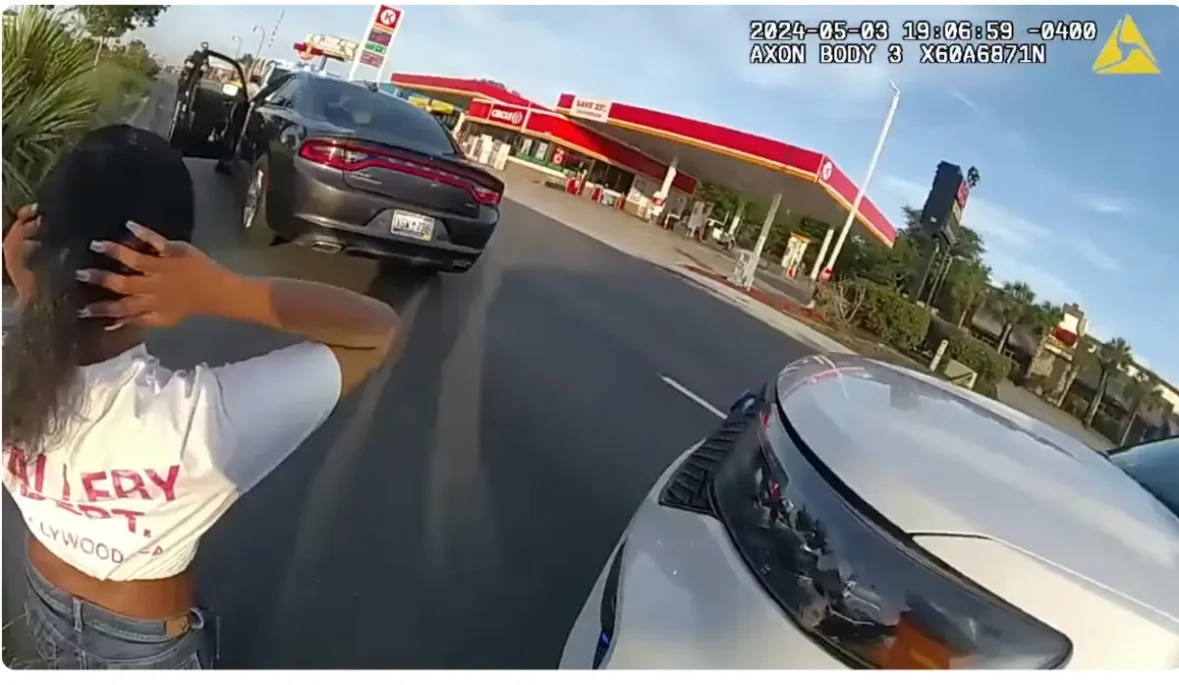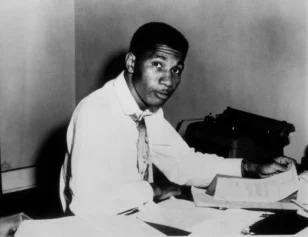A South Carolina city settled a lawsuit filed by a young woman who was pulled over by multiple cops and treated like a car theft suspect even though she committed no crime.
The traffic stop involving 18-year-old La’Nisha Hemingway happened earlier this year on May 3. Police officers in North Myrtle Beach were looking for a stolen Dodge Challenger and stopped and detained Hemingway, who was driving a car of the same make but not the same model or color.

Right before pulling Hemingway over, bodycam footage shows Officer Kayla Wallace telling dispatch she was preparing to conduct a “high-risk” stop on the 18-year-old’s car. After initiating the stop, Wallace states, “Not it,” indicating that the vehicle she pursued was not the car police were looking for.
By the time Wallace made the revelation, another officer, Mike Pacileo, had pulled up to the scene, exited his car, and demanded Hemingway get out of her vehicle while holding her at gunpoint. Wallace follows suit and points her weapon at Hemingway, as well.
Hemingway, who was on her way to meet with friends to celebrate their upcoming high school graduation, expressed shock and confusion throughout the encounter. She wondered why the cops stopped her and demanded they let her call her mother.
Wallace told her that police got a “hit” that her car was stolen. Hemingway requested the officers to check her license and registration to prove otherwise, but neither Wallace nor Pacileo checked Hemingway’s documents.
Bodycam video also shows officers searching Hemingway’s car while the teen questions why they’re not running her license plates and protesting their treatment.
Hemingway filed a federal lawsuit the month after the traffic stop, accusing both officers of false imprisonment, unlawful seizure, excessive force, recklessness, and negligent training.
According to the complaint, the stolen car report police received described a silver Dodge Challenger — a two-door car — with a South Carolina license plate that read VLP 678. Hemingway was driving a dark gray Dodge Charger — a four-door vehicle — with a South Carolina plate that read VSW 736.
Shortly after Wallace places Hemingway in handcuffs, bodycam footage shows Pacileo informing her that they stopped the wrong car. Wallace responds, “That’s not it?” as if the development is new to her.
Wallace promptly removes the cuffs and tries to explain the situation to Hemingway, who is roiled by the encounter.
“I don’t want to hear sh–t; let me go,” Hemingway said as she walked back to her sedan and climbed into the driver’s seat.
The city paid Hemingway $250,000 to settle her lawsuit. No other stipulations were included in the agreement.
Pacileo and Wallace are still employed with the police department.
Following the settlement, Hemingway told reporters that she suffered from anxiety, PTSD, and depression since the traffic stop.
“The police officers around the world are supposed to be here to protect us not cause no one harm or trauma,” Hemingway said, adding, “The incident with North Myrtle Beach Police Department ruined my life. I’m not the same anymore … If I would have moved differently, or reacted differently, I probably wouldn’t be here today.
Hemingway also shared that she wants to advocate for community members who have encountered similar experiences.
“Nobody sets out to be a civil rights activist,” Hemingway’s attorney Tyler Bailey said. “She (should want to) mind her own business, want to hang out with friends for her senior year. And this one moment changed her life forever … but what I would like to see her do is take some time to be a kid, too.”


